|
Genres, Themes, Actors, and Directors:
- Broderick Crawford Films
- Domestic Abuse
- Fritz Lang Films
- Glenn Ford Films
- Gloria Grahame Films
- Homicidal Spouses
- Infidelity
- Trains and Subways
- Veterans
Response to Peary’s Review:
Peary writes that this “intense, fatalistic drama by Fritz Lang, adapted from Emile Zola’s naturalistic novel La Bete Humaine” — and originally “filmed earlier in France by Jean Renoir” — is “expertly directed and acted, and is engrossing,” yet he argues “it lacks the sexual heat of the Renoir film.” Peary’s review doesn’t provide any further analysis of the movie — which I can’t yet compare to La Bete Humaine (1938) since I still need to rewatch that — but I think stands just fine on its own as an absorbing noir with a uniquely complex femme fatale and plenty of “heat”.
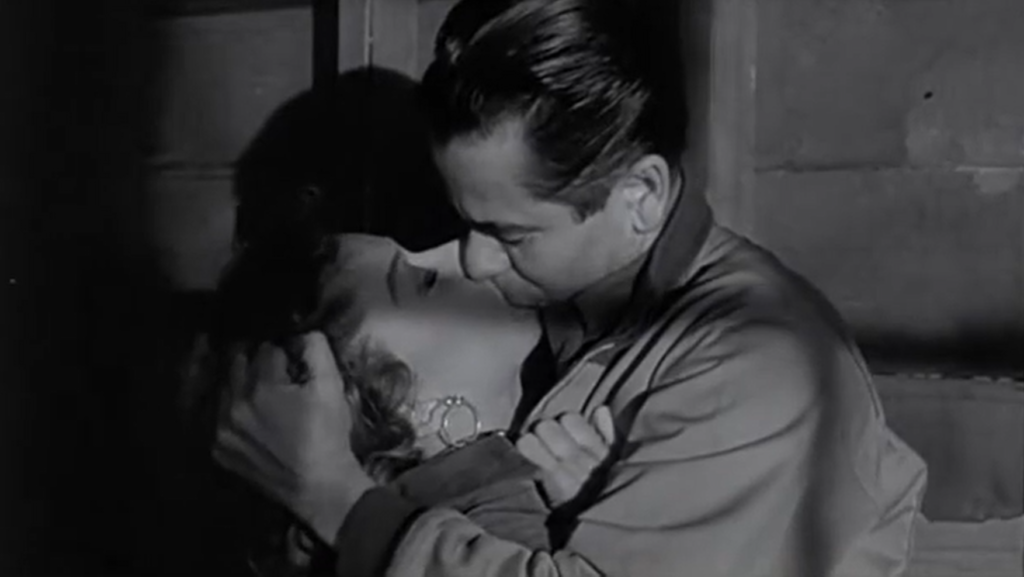
By being shown Grahame’s life with bullying Crawford, who really is domestically terrorizing her:
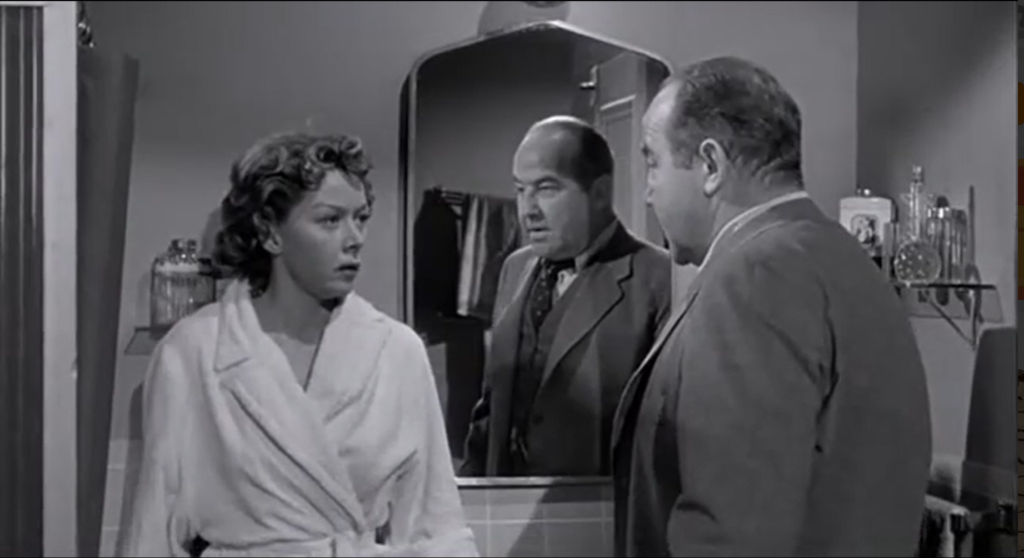
… we sympathize with her desire for something better (i.e., with unmarried Ford), and we know she’s not completely without cause in wanting Crawford out of her life for good.
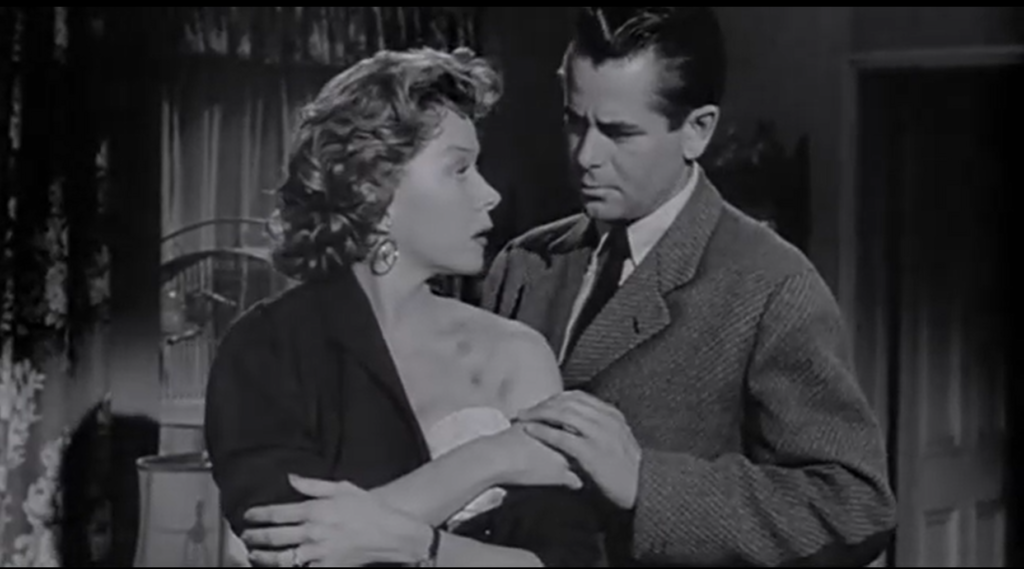
Meanwhile, Fritz Lang’s direction — assisted by DP Burnett Guffey — is solid throughout, making effective use of railyard locales (meant to be in California, but actually filmed in El Reno, Oklahoma):
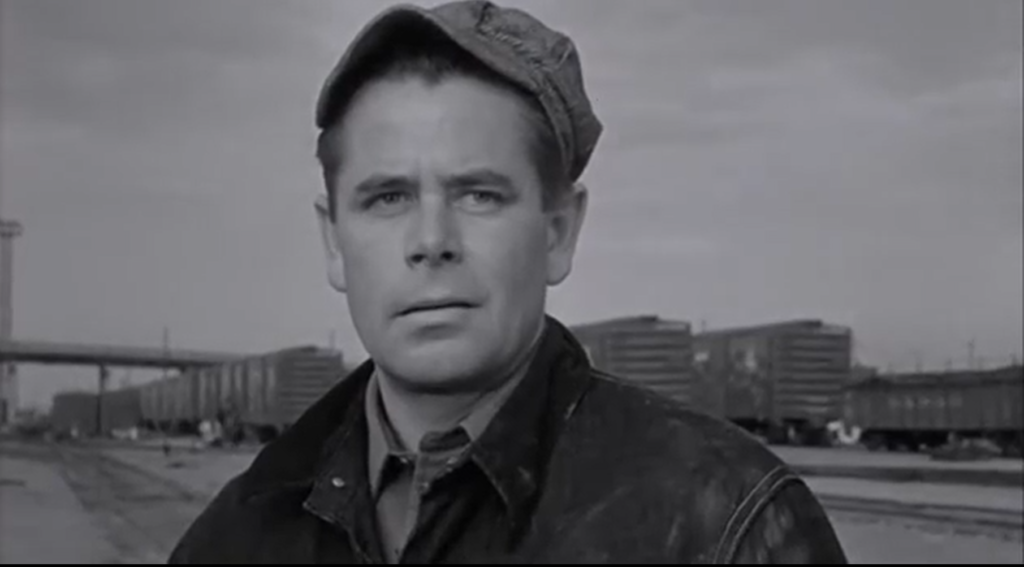
… and cleverly using light and shadow to show the main characters literally divided in their impulses.
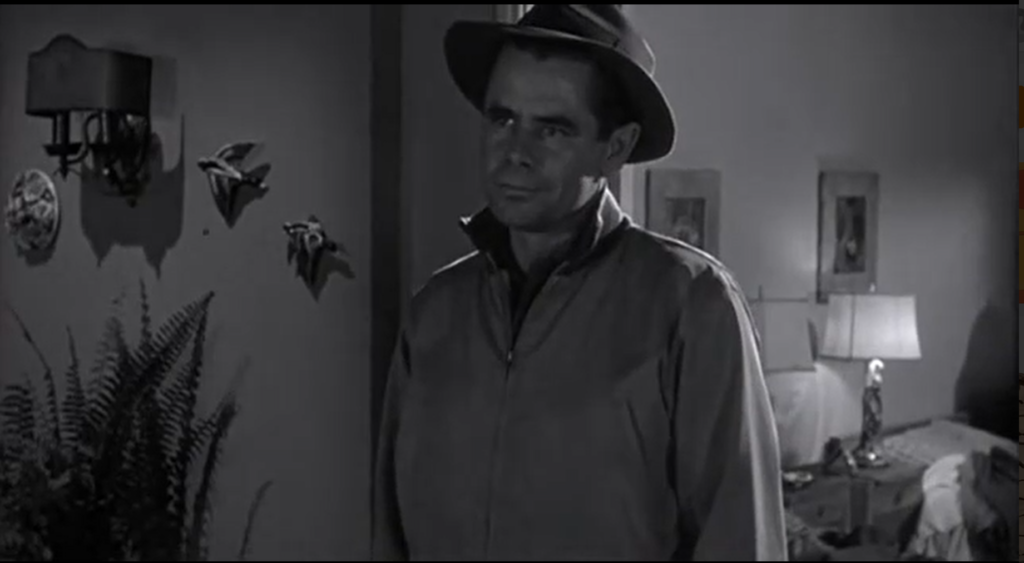
Redeeming Qualities and Moments:
- Gloria Grahame as Vicki
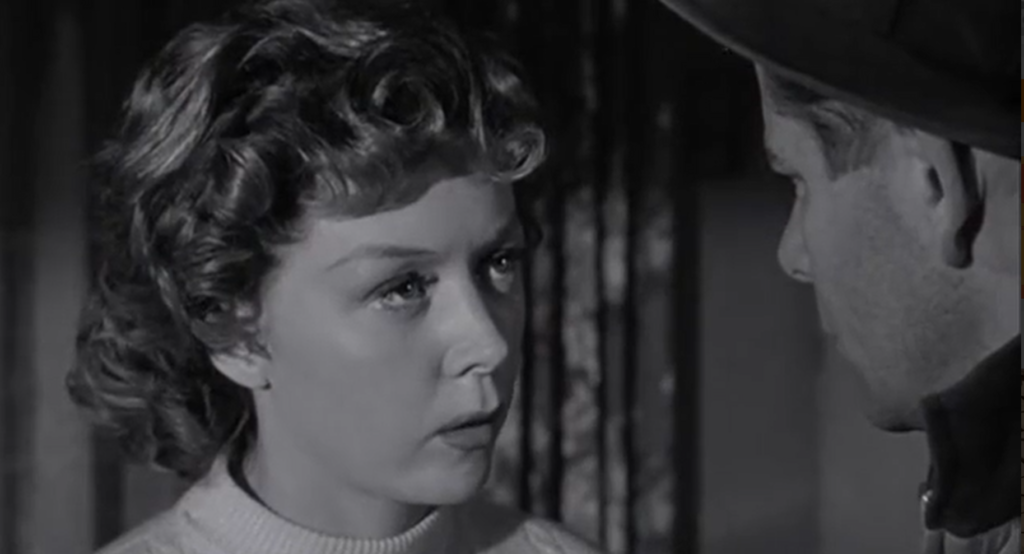
- Glenn Ford as Jeff
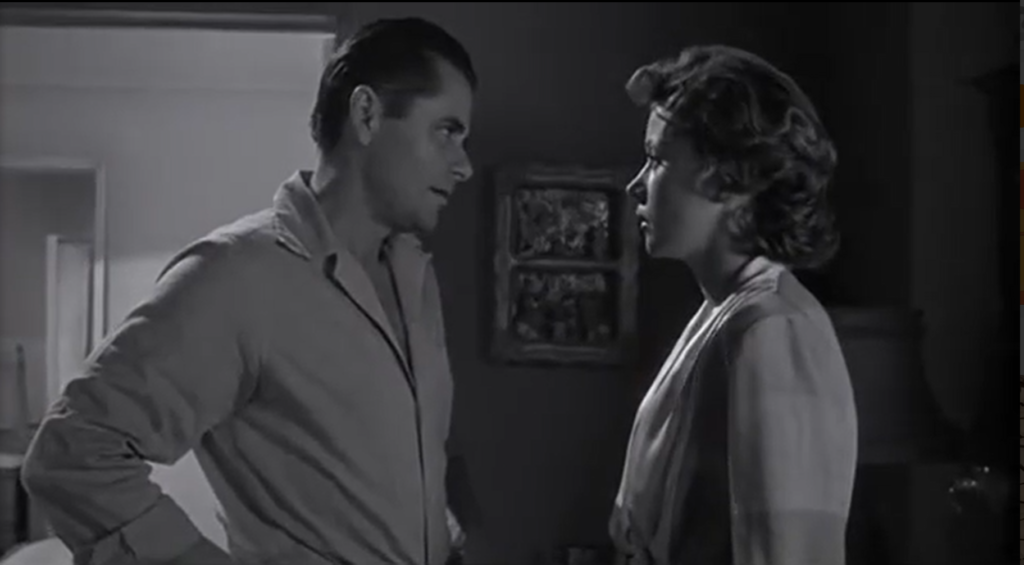
- Broderick Crawford as Carl
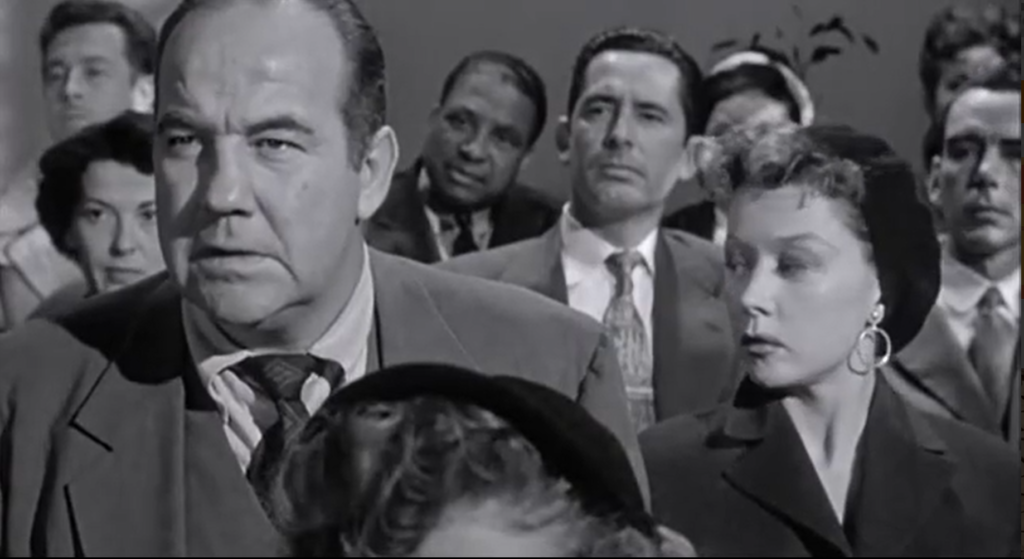
- Burnett Guffey’s cinematography
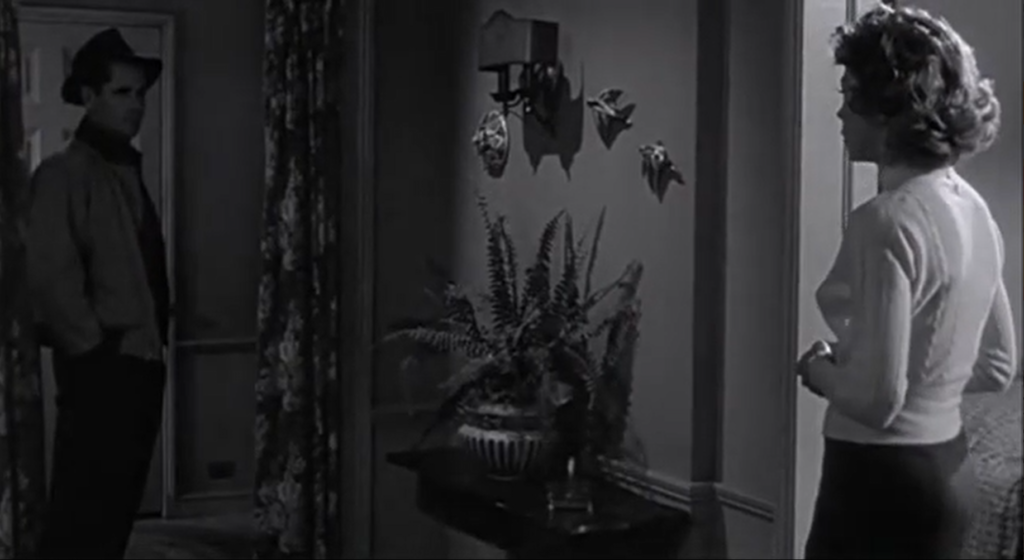
Must See?
Yes, as a powerful noir by a master director.
Categories
- Good Show
- Important Director
Links:
|
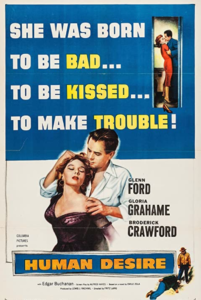









One thought on “Human Desire (1954)”
A once-must, as a worthy Lang film. As per my 4/19/21 post in ‘The ’40s-’50s in Film’ (fb):
“I don’t know too much about the kind of love that makes people hurt one another. I don’t think I want to know.”
‘Human Desire’ (1954): Jean Renoir’s 1938 film of Emile Zola’s ‘La Bête humaine’ (‘The Human Beast’) is – according to Wikipedia – “sometimes considered a precursor to the film noir genre”. (I believe I’ve seen Renoir’s film but, if so, it was awhile back. It is said that the film only uses part of the novel.)
It’s not that long into this Fritz Lang remake (with Glenn Ford, Gloria Grahame and Broderick Crawford) that things begin to feel – oh, let’s say “convoluted”. Not that there’s anything wrong with that. Crime dramas and film noirs often reveal the convoluted. However, though I haven’t read Zola’s novel, a read of the synopsis of it showed me that Lang’s re-worked version is mere child’s play: Emile seemed to be throwing everything into his nutso plot but the psychotic kitchen sink! (Apparently, even in abbreviated form, Renoir stuck closer to Zola.)
Screenwriter Alfred Hayes had just previously done a nifty job in adapting Clifford Odets for Lang’s equally effective ‘Clash by Night’. It’s significant that, in the title, ‘beast’ is changed to ‘desire’. That’s most likely because this version seems to highlight the sex angle: how people can do heinous things due to passion rather than psychological make-up.
Always at home with murder and adultery, Gloria Grahame is in this movie. And, here, she appears to be a relative of Mary Astor’s Brigid O’Shaughnessy in ‘The Maltese Falcon’. There must be an adjective for that kind of woman but I’m hard-pressed to think of what it is. It’s not that she’s a pathological liar (like Brigid, though one could leave it at that); she seems to live by her wits as a result of being very pretty but not very bright. Poor thing.
Effectively photographed by dependable DP Burnett Guffey (Oscar winner for ‘From Here to Eternity’ & ‘Bonnie and Clyde’). If this isn’t Lang at his best, it’s still good-enough – and sits well with the director’s ‘The Big Heat’ (also with Ford and Grahame, the previous year).